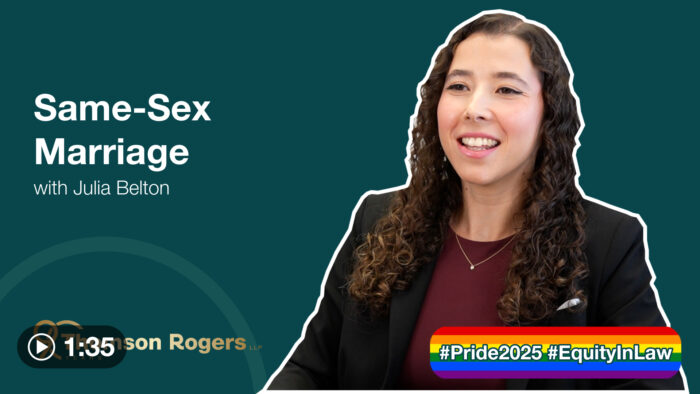Great Litigation Articles – What You Need to Know
March 19, 2010
Articling is more than a stepping stone on the way to being called to the bar. It is your only opportunity to learn your craft at some one else’s expense. To get the most out of your experience it is essential that your articles expose you to great litigators and complex cases in an environment where you participate in all aspects of the case.
Getting great litigation articles means approaching the application and interview process in a strategic way to increase the prospect of being selected by the firm you want. Like a trial, it takes preparation and hard work to get the experience you want.
Here are some ideas.
Before you even begin
Build your resume
Litigation firms screen candidates based on their assessment of your interest and aptitude for litigation. They want to know you are preparing yourself for a career and not just looking for a job. Besides, you need to understand what you want to do and that means looking carefully at litigation well before the interview process gets started. The easiest way to get exposure is at law school. Expose yourself to litigation early and often to develop experience in the area as well as your resume.
Take Litigation-Centred Courses
For most law schools, the two important litigation-related courses, civil procedure and legal drafting, are mandatory. Restricting yourself to these courses won’t prepare you for a career in litigation. Your resume isn’t going to stand out from the crowd.
Consider taking courses that expose you to advanced civil procedure and that get you onto your feet. We recommend any of:
- advanced civil procedure;
- advanced legal drafting;
- moot courses;
- ADR courses;
- trial advocacy; and/or
- clinic courses.
If you plan to take litigation-centred courses in your third year, which will not appear on the transcripts that you submit with your application package, it would be wise to include a list of third-year courses with your resume package and include that fact in your covering letter.
Summer in Litigation
Think outside of the box. The firms know how hard it is to get first and second year summer positions, but there are other places where you can apply to gain experience before articling on a paid or volunteer basis. Some ideas include:
- sole practitioners;
- government (provincial or local) including elected officials;
- public advocacy associations; and/or
- legal aid clinics.
A summer research position can be considered litigation-experience, depending on the subject area especially if you were involved with interviewing witnesses.
Volunteer in Litigation
Most law schools have some sort of legal aid or clinic program. Clinical settings offer an excellent opportunity to learn file management, how to deal with clients, how to find the legal issue amongst the facts and how to resolve disputes. Clinics also provides a great opportunity to “get on your feet”.
You may have had a litigation or advocacy experience without even realizing it. Have you self-represented in Provincial Offences Court over a traffic ticket? Have you resolved a dispute with your landlord? Have you appeared before an immigration board? If so highlight these sorts of experiences in your application cover letter. These personal advocacy experiences or challenges can demonstrate an interest or experience in litigation when you apply for articles.
Moot
Oral advocacy is a core skill for a litigator. As a result, you should seek out opportunities to get on your feet as often as you can and then translate those experiences into assets on your resume.
Membership in a competitive inter-school mooting team is an asset. If you were on one of these mooting teams, be sure to highlight it in your cover letter. You may want to talk about, for example, how many students tried out versus how many spots were available on the team and how the experience furthered your interest in litigation.
Participation in a course-based moot is also useful. If the moot was not mandatory, you may wish to describe it as such in your resume. If the moot was mandatory, you may wish to explain how it is that the experience furthered your interest in litigation or what aspects of the experience you most enjoyed and why.
If you wanted to participate in a course-based or volunteer moot, but were not able to through no fault of your own, do not panic. Most firms are aware that these moots have become very popular and that schools sometimes have to implement a lottery system for spots. If, as luck would have it, you entered the lottery but did not get selected, you should briefly explain this. The desire to participate in a course-based or volunteer moot still demonstrates an interest in litigation.
Finding your firm
Of course, finding the right firms to apply to is the key to good litigation articles. Beyond the usual law school lists we suggest you develop your own list. Consider using:
- Web searches using Google appropriate key words such as top litigation firm “Toronto”… Also consider looking at litigation sub topics such as personal injury or court lawyers;
- Use the on-line lawyer referral services such as Lexpert;
- Review the Ontario Reports and note the names of counsel in the cases that interest you the most;
- Not all cases go to court so don’t forget to conduct news searches to find cases that interest you. Using keywords that focus on “damages” or “settlement” should narrow the results to a manageable list; or
- Speak to professors or contacts you already have in the legal industry and ask for suggestions.
Once you have a good list be sure to research the firms using their web sites. Look for their student plans or other indicators of the scope of the articling experience. Use legal tools such as the Ontario Reports to see if the members of that firm are involved in the kind of work that interests you.
The Application
Virtually every student applying to a litigation firm will use the buzz phrase “I am interested in litigation” in his or her cover letter. To set yourself apart from the other applicants you need to demonstrate that interest in your covering letter.
In recent years there has been a trend towards using standard letters to transmit applications. Often these letters are from the same source and as a result these applicants simply blend into the crowd. Spend time researching your top law firm choices and use that knowledge to personalize the application. Let the firm know:
- why you are interested in that firm;
- what qualities or experiences you want highlighted; and
- any special considerations such as interview availability or contact information during the interview period.
General Tips for Your Articling Application
- Don’t make careless errors. Double check the law firm details.
- Check the spelling of the firm’s name.
- If you are cutting and pasting make sure the use of the firm name in the body of the letter is consistent with the name in the address.
We often see careless errors where the letter is addressed to Thomson Rogers and then mentions the candidate’s interest in working for another law firm in the body of the letter or the candidate has misspelled the firm name. No law firm is going to prioritize a candidate that appears careless.
- On the subject of careless errors, spell check your letter and resume and have a friend read them over. You will have read it so many times that you will not “see” errors.
- Another reason to avoid form letters, whether applying to a litigation firm or elsewhere; be sure to let your personality show in your application. Firms want to know the real you.
- Tailor your cover letter to the firm’s specific practise areas. If the firm exclusively practices plaintiff personal injury litigation, do not say in your cover letter that you are looking forward to practising estate litigation.
- Different firms have different application requirements. Some firms require a writing sample or references along with a cover letter, resume and transcripts. Make sure you double check the requirements of each firm so that your application is complete. If the information isn’t evident don’t hesitate to contact the firm and ask. It is important that you give the firm what it needs to make a positive decision about your application.
Conclusion
Litigation firms are looking for students who are interested in litigation and can substantiate that assertion. They are looking for someone who stands out from the crowd and says they will be an asset to the firm.
Thomson Rogers wishes you the best of luck as you apply for a litigation articling position. If we can answer any questions to help you navigate the articling application process, please get in touch. Please contact our Student Committee Chair, at articling@thomsonrogers.com.
Share this






